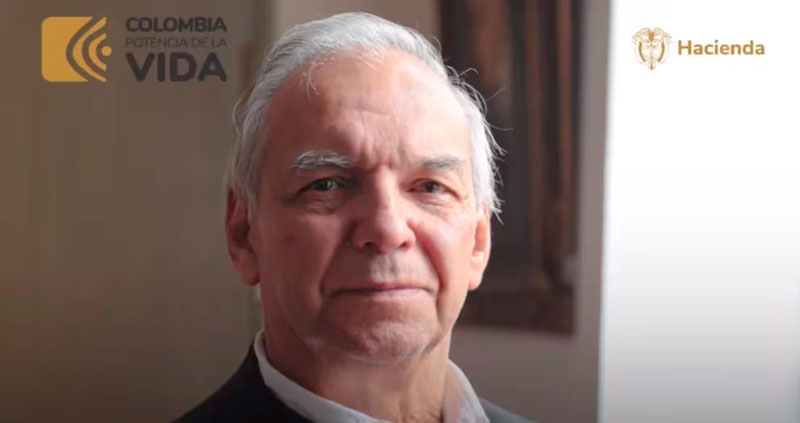The Minister of Finance, Ricardo Bonilla, announced during an interview with the Presidency of the Republic that the country will focus on the creation of a plan for the replacement of the automobile fleet, with the aim of reducing the consumption of fossil fuels and improving quality. of the air, as well as promoting the use of clean energy.
These actions are part of the National Government’s efforts to combat climate change and manage the deficit in the Fuel Price Fund. In addition, negotiations are underway with truckers regarding the increase in the price of ACPM.
During the conversation with institutional media, Bonilla highlighted that, although a key point of the current negotiations is determining how the price of a gallon of diesel will be adjusted, the government has special interest in “how we generate a path of replacement of the vehicle fleet so that we go abandoning the consumption of this fuel.” This indicates a government effort to update the country’s vehicle fleet towards more sustainable and environmentally friendly options.
Minister Bonilla pointed out that the vehicle replacement plan will allow in the long term an effective transition towards renewable energy sources, a policy aligned with international commitments to reduce emissions and promote clean technologies.
“It is time for us to move to other types of less polluting or more environmentally friendly fuels, to move to hybrid cars or to move to electric cars,” highlighted the Minister of Finance Ricardo Bonilla.
The country faces a future where electric vehicles and hydrogen will dominate the automotive market, according to Ricardo Bonilla, in an effort to reduce the country’s environmental footprint and promote better environmental quality. When asked about the current high cost of fossil fuel-free automobiles, Bonilla maintained that, although it is an arduous process, it should not falter, since it represents the environmental aspirations of the Colombian population and the protection of its ecosystems.
Minister Bonilla also noted that it is essential to establish a clear temporal reference point for the energy transition in the automotive sector. In terms of public policies, it will be necessary to determine when license plates for vehicles that use conventional fuels such as diesel or gasoline will no longer be authorized. This measure has the objective of only allowing the entry of electric cars or those that run on hydrogen into the market.
“That is what we have to propose, which means that from the outset we do have to leave a horizon in the Colombian market of what year, at what time we can no longer authorize the registration of a vehicle that consumes diesel or gasoline and only electric or hydrogen vehicles enter,” highlighted the head of the Treasury portfolio.
The change towards a sustainable vehicle fleet is not only a regulatory and market challenge, but also implies a review of the economic offer of these vehicles. Bonilla emphasized that more accessible options are expected on the market in the near future, which will require a detailed analysis and a strategy to implement it effectively. He highlights the importance of this transition by pointing out that the environmental footprint currently caused by the burning of gasoline and diesel remains considerably high in Colombia.
What will happen with the increase in the price of ACPM
The Minister of Finance highlighted the deficit of 37 billion pesos in the Fuel Price Stabilization Fund (FEPC) and the need for adjustments in the price of diesel. While increases have been applied to gasoline, the price of ACPM remains unchanged at $9,065 per gallon on average so as not to affect inflation and the logistics chain of cargo transportation.
The deficit generated by the difference between the frozen internal price and the international price of fuel has been financed by the national budget, as explained by the minister.
The daily gasoline subsidy has implied a considerable distraction of resources that could have been used in areas such as health, education and citizen income. To control this expense, a monthly control of the price of gasoline is proposed based on the market and the exchange rate, once the gap with the Fepc is closed.
Decisions on the ACPM will be made in consultation with the transport unions, seeking to minimize the impact on inflation and transport components. The government is working closely with these sectors to implement considered and balanced adjustments. The purpose is to maintain the inflation goal at 5% at the end of the year, key to controlling the cost of living.
The monthly review of gasoline rates will begin once the imbalance in the Fepc is resolved and will depend on the movements in the price of oil and the exchange rate in Colombia. The Government thus seeks prudent and sustainable management of resources, avoiding overloading the national budget and better distributing it in priority areas for social well-being. With Infobae
